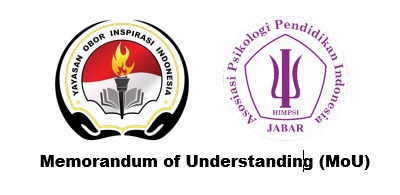Fenomena Cyber Bullying pada Remaja dan Upaya Pencegahannya
Keywords:
Social Media, Delinquency, CyberbullyingAbstract
This article discusses the phenomenon of cyberbullying among teenagers and efforts to prevent it. Cyberbullying is a form of intimidation conducted through digital media, including the spread of false news, inappropriate photos or videos, harsh messages that harm the victim. This phenomenon has become increasingly prevalent with the advancement of technology and the widespread use of social media among teenagers. Teenagers often fall into cyberbullying due to egocentrism, where they tend to underestimate the impact of their action on others. Additionally, the lack of supervision from parents and unsupportive social environtmen further exacerbates this situation. The impact of cyberbullying is very serious, including psychological issues such as decreased self-esteem and self-confidence, as well as physical problems such a prolonged stress and headaches. To address this issues, collaborative efforts between the government, families, and educational institutions are needed. Education about the dangers of cyberbullying and awareness campaigns in the community are also important. Guidance and reinforcement of moral values from an early age can help teenagers understand the negative impact of their behavior and reduce the incidence of cyberbullying.
References
Agisyaputri, E., Nadhirah, N. A., & Saripah, I. (2023). Identifikasi fenomena perilaku bullying pada remaja. Jurnal Bimbingan Dan Konseling, 3, 19–30. https://jurnal.stkipmb.ac.id/index.php/jubikops/article/view/201/152
Al Adawiah, R., & Esther Masri. (2022). Urgensi Pencegahan Perundungan Dunia Maya (Cyberbullying) Terhadap Pelajar. Abdi Bhara, 1(1), 24–31. https://doi.org/10.31599/abhara.v1i1.1172
Astuti, N. D., & Prasetya, F. F. D. (2022). Apakah Kelekatan Aman Antara Anak dan Orang Tua Bisa Mempengaruhi Perilaku Cyberbullying Pada Remaja? PUBLIK: Publikasi Layanan Bimbingan Dan Konseling Islam, 1(2), 50–62. https://doi.org/10.47945/publik.v1i2.733
Bulu, Y., Maemunah, N., & Sulasmini. (2019). Faktor-faktor yang Mempengaruhi Perilaku Bullying pada Remaja Awal. Nursing News, 4(1), 54–66. https://publikasi.unitri.ac.id/index.php/fikes/article/download/1473/1047
Bunga, D. (2020). Analisis Cyberbullying Dalam Berbagai Perspektif Teori Viktimologi. Vyavahara Duta, 14(2), 48. https://doi.org/10.25078/vd.v14i2.1253
Chakan, A., & Millenio, M. F. (2023). Protection of Cyberbullying Victims in Indonesia (An Overview of Law and Victimology). Semarang State University Undergraduate Law and Society Review, 3(1), 1–26. https://doi.org/10.15294/lsr.v3i1.53757
Iskandar Yahya Arulampalam Kunaraj P.Chelvanathan, A. A. A. B. (2023). Persepsi Remaja Terhadap Cyberbullying. Journal of Engineering Research, 3(08).
Kühn, C. (2018). 4. Juli 2015. Operation Goldesel, 5(2), 101–103. https://doi.org/10.1515/9783035617047-038
Malihah, Z., & Alfiasari, A. (2018). Perilaku Cyberbullying pada Remaja dan Kaitannya dengan Kontrol Diri dan Komunikasi Orang Tua. Jurnal Ilmu Keluarga Dan Konsumen, 11(2), 145–156. https://doi.org/10.24156/jikk.2018.11.2.145
Mawardah, M., & Adiyanti, M. (2014). Regulasi Emosi dan Kelompok Teman Sebaya Pelaku Cyberbullying. Jurnal Psikologi, 41(1), 60. https://doi.org/10.22146/jpsi.6958
Media, I., & Media, I. (2024). GOVERNANCE : Jurnal Ilmiah Kajian Politik Lokal dan Pembangunan. 10, 101–106.
Pratiwi, L. (2019). Peran Orang Tua Dalam Mencegah Kenakalan Remaja Desa Gintungan Kecamatan Gebang Kabupaten Purworejo. Diklus: Jurnal Pendidikan Luar Sekolah, 1(1), 75–83. https://doi.org/10.21831/diklus.v1i1.23854
Rizqi, H. (2019). Dampak Psikologis Bulliying Pada Remaja. Wiraraja Medika, 9(1), 31–34. https://doi.org/10.24929/fik.v9i1.694
Safaria, T. (2016). Prevalence and impact of cyberbullying in a sample of indonesian junior high school students. Turkish Online Journal of Educational Technology, 15(1), 82–91.
Siwi, A., Utami, F., & Baiti, N. (2018). Pengaruh Media Sosial Terhadap Perilaku Cyber Bullying Pada Kalangan RSiwi, A., Utami, F., & Baiti, N. (2018). Pengaruh Media Sosial Terhadap Perilaku Cyber Bullying Pada Kalangan Remaja. 18(2), 257–262.emaja. 18(2), 257–262. http://ejournal.bsi.ac.id/ejurnal/index.php/cakrawala%0APengaruh
Supriatna, E., Hanurawan, F., Eva, N., & Rahmawati, H. (2023). Development and Validation of Cyberbullying Measurement Instrument: A Mixed Method Approach. Khazanah Sosial, 5(4), 595–606. https://doi.org/10.15575/ks.v5i4.30992
Triwulandari, A. A., & Jatiningsih, O. (2022). Strategi Sekolah dalam Pencegahan Cyberbullying pada Siswa di SMP Negeri 6 Sidoarjo. Kajian Moral Dan Kewarganegaraan, 11(1), 160–176. https://doi.org/10.26740/kmkn.v11n1.p160-176
Utomo, P., & Prayogi, F. (2021). Literasi Digital: Perilaku dan Interaksi Sosial Masyarakat Bengkulu Terhadap Penanaman Nilai-nilai Kebhinekaan Melalui Diseminasi Media Sosial. Indonesian Journal of Social Science Education (IJSSE), 3(1), 65-76.
Violenta, D., Budiyani, K., & Utami, N. I. (2022). Regulasi Emosi Dan Perilaku Cyberbullying Pada Remaja. PSIKOSAINS (Jurnal Penelitian Dan Pemikiran Psikologi), 16(2), 80. https://doi.org/10.30587/psikosains.v16i2.4557
Yunita, R. (2023). Perundungan Maya (Cyber Bullying) Pada Remaja Awal. Muhafadzah, 1(2), 93–110. https://doi.org/10.53888/muhafadzah.v1i2.430
Zubaedi, Z., Utomo, P., & Musofa, A. A. (2021). Perilaku Sosial Masyarakat Bengkulu terhadap Penggunaan Media Sosial sebagai Diseminasi Informasi, Bimbingan Pribadi-Sosial dan Deradikalisasi. Indonesian Journal of Community Services, 3(2), 193-202.
Zubaedi, Z., Utomo, P., & Heriadi, M. (2019). Efektivitas penggunaan media sosial sebagai bimbingan pribadisosial dan pengaruhnya terhadap penanaman nilai-nilai keagamaan pada masyarakat. Manhaj: Jurnal Penelitian dan Pengabdian Masyarakat, 10(2), 129-146.
Downloads
Published
Issue
Section
License

This work is licensed under a Creative Commons Attribution-NonCommercial-ShareAlike 4.0 International License.






